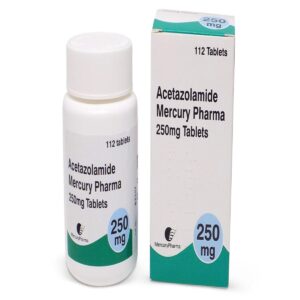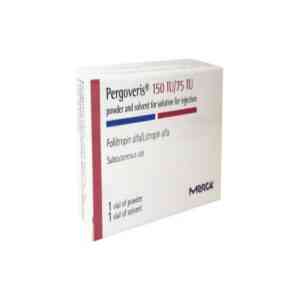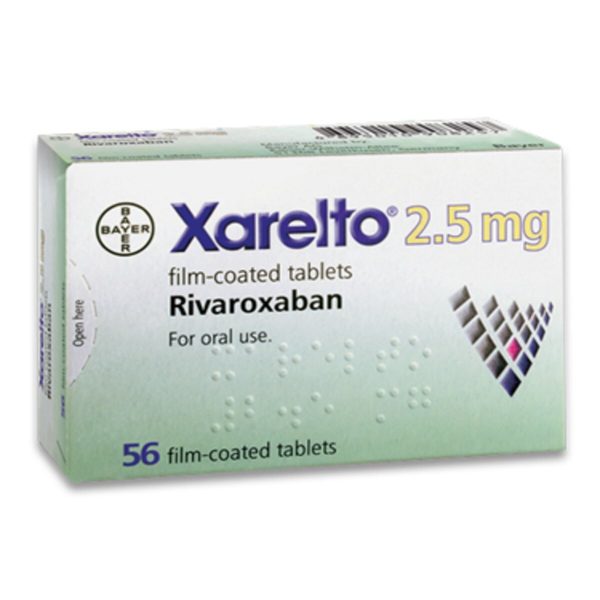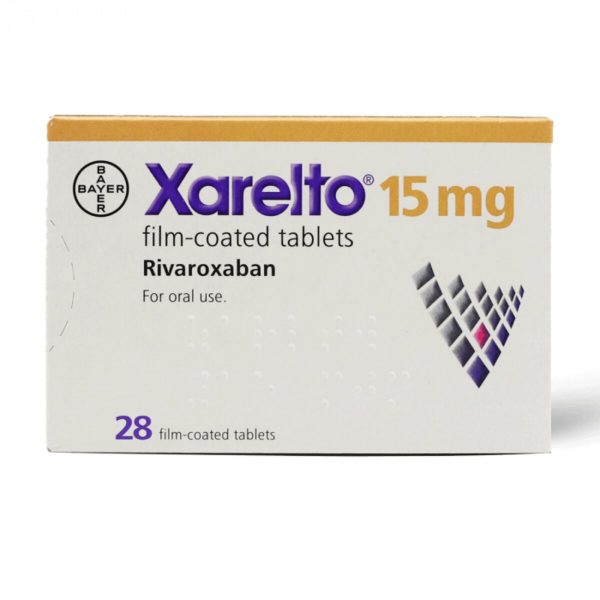- Description
- Brand
- How To Use
- Product Details
- Side Effects
- Ingredients
- How to Store
- Patient Information leaflet
- Reviews (0)
- Questions & Answers
Tresiba Flextouch U200, Insulin Degludec U200/1ml, 3X3ml
Introducing Tresiba Flextouch U200/1ml – Insulin Degludec U200/1ml Pre-filled
Manage your diabetes with confidence using Tresiba Flextouch U200/ml – a revolutionary long-acting basal insulin designed to empower individuals of all ages in their journey towards better health. TRESIBA is crafted with precision to provide effective blood sugar control, making it a trusted choice for adults, adolescents, and children aged 1 year and above.
Key Features:
1. Long-Lasting Effect: TRESIBA boasts a unique formulation of insulin Degludec, offering an extended blood sugar-lowering effect that supports once-daily dosing. This exceptional feature provides flexibility in your dosing schedule, allowing for adjustments when needed without compromising effectiveness.
2. Versatile Usage: Tailored to meet the diverse needs of diabetes management, TRESIBA can be seamlessly integrated into your treatment plan. In type 2 diabetes mellitus, it can be used alongside diabetes tablets or other injectable antidiabetic medicines, excluding insulin. For type 1 diabetes mellitus, TRESIBA must be complemented with meal-related rapid-acting insulin medicines.
3. Complementary with Rapid-Acting Insulin: Experience the synergy of TRESIBA with meal-related rapid-acting insulin products. This combination ensures comprehensive blood sugar control, offering you a well-rounded approach to managing your diabetes.
4. Convenient Administration: TRESIBA is available in two user-friendly formats – the Tresiba Flextouch prefilled syringe and the Tresiba Penfill cartridge. These options cater to your preferences, ensuring a hassle-free and comfortable administration experience.
5. Veterinary Application: Beyond human use, TRESIBA is also prescribed by veterinarians for the treatment of diabetes in cats and dogs. This demonstrates the versatility and effectiveness of TRESIBA in providing tailored solutions for your beloved pets.
Choose Tresiba Flextouch U200/ml as your partner in diabetes management. Embrace the freedom to live life on your terms with the assurance of consistent blood sugar control. Take charge of your well-being with TRESIBA – where innovation meets reliability. Order now and experience the difference in your diabetes care routine.
Tresiba Flextouch U200 Reviews
After using Tresiba Flextouch U200, it’s helpful to let others know about your experience. Reviews of an item help other users know that medicines received have helped the condition it is claimed for, how well the treatment worked or any issues to be aware of. We invite our users to leave a review of both their treatment and of the service provided. Click on the reviews tab to see if there has been feedback on this item.
What is the price of Tresiba Flextouch U200?
The price of Tresiba Flextouch U200 is £78.29
Where can you buy Tresiba Flextouch U200?
You can buy Tresiba Flextouch U200 at Dock Pharmacy Essex UK, UK Online Pharmacy.
Can you buy Tresiba Flextouch U200 Over the counter?
Tresiba Flextouch U200 is not available to buy over the counter. You need a prescription to buy Tresiba Flextouch U200 from Dock pharmacy. You can find more information about how to obtain the medication here:
Disclaimer: This product description is provided for informational purposes only. It is not a substitute for professional medical advice, diagnosis, or treatment. Always seek the advice of your physician or other qualified health provider with any questions you may have regarding a medical condition
Dock Pharmacy
128 Dock Road, Tilbury, Essex, RM18 7BJ
Tel: 01375846316
https://g.page/DockPharmacy?share
Brand
TRESIBA
How To Use
How To Use
How to use Tresiba
Always use this medicine exactly as your doctor has told you. Check with your doctor, pharmacist or nurse if you are not sure.
Product Details
What you need to know before you use Tresiba
Do not use Tresiba® • if you are allergic to insulin degludec or any of the other ingredients of this medicine (listed in section 6). Warnings and precautions Talk to your doctor, pharmacist or nurse before using Tresiba®. Be especially aware of the following: • Low blood sugar (hypoglycaemia) – if your blood sugar is too low, follow the guidance for low blood sugar in section 4. • High blood sugar (hyperglycaemia) – if your blood sugar is too high, follow the guidance for high blood sugar in section 4. • Switching from other insulin medicines – the insulin dose may need to be changed if you switch from another type, brand or manufacturer of insulin. Talk to your doctor. • Pioglitazone used together with insulin, see ‘Pioglitazone’ below. • Eye disorder – fast improvements in blood sugar control may lead to a temporary worsening of diabetic eye disorder. If you experience eye problems, talk to your doctor. • Ensuring you use the right type of insulin – always check the insulin label before each injection to avoid accidental mix-ups between different strengths of Tresiba® as well as other insulin products. 2 If you have poor eyesight, please see section 3. Skin changes at the injection site The injection site should be rotated to help prevent changes to the fatty tissue under the skin, such as skin thickening, skin shrinking or lumps under the skin. The insulin may not work very well if you inject into a lumpy, shrunken or thickened area (see section 3 ‘How to use Tresiba®’). Tell your doctor if you notice any skin changes at the injection site. Tell your doctor if you are currently injecting into these affected areas before you start injecting in a different area. Your doctor may tell you to check your blood sugar more closely, and to adjust your insulin or your other antidiabetic medications dose. Children and adolescents Tresiba® can be used in adolescents and children aged 1 year and above. There is no experience with the use of Tresiba® in children below the age of 1 year. Other medicines and Tresiba® Tell your doctor, pharmacist or nurse if you are taking, have recently taken or might take any other medicines. Some medicines affect your blood sugar level, this may mean your insulin dose has to be changed. Listed below are the most common medicines which may affect your insulin treatment. Your blood sugar level may fall (hypoglycaemia) if you take: • other medicines for diabetes (oral and injectable) • sulfonamides, for infections • anabolic steroids, such as testosterone • beta-blockers, for high blood pressure. They may make it harder to recognise the warning signs of too low blood sugar (see section 4 ‘Warning signs of too low blood sugar’) • acetylsalicylic acid (and other salicylates), for pain and mild fever • monoamine oxidase (MAO) inhibitors, for depression • angiotensin converting enzyme (ACE) inhibitors, for some heart problems or high blood pressure. Your blood sugar level may rise (hyperglycaemia) if you take: • danazol, for endometriosis • oral contraceptives (birth control pills) • thyroid hormones, for thyroid problems • growth hormone, for growth hormone deficiency • glucocorticoids such as ‘cortisone’, for inflammation • sympathomimetics such as epinephrine (adrenaline), salbutamol or terbutaline, for asthma • thiazides, for high blood pressure or if your body keeps too much water (water retention). Octreotide and lanreotide: used to treat a rare condition involving too much growth hormone (acromegaly). They may increase or decrease your blood sugar level. Pioglitazone: oral antidiabetic medicine used to treat type 2 diabetes mellitus. Some patients with long-standing type 2 diabetes mellitus and heart disease or previous stroke who were treated with pioglitazone and insulin experienced the development of heart failure. Inform your doctor immediately if you experience signs of heart failure such as unusual shortness of breath, rapid increase in weight or localised swelling (oedema). If any of the above applies to you (or you are not sure), talk to your doctor, pharmacist or nurse. Tresiba® with alcohol If you drink alcohol, your need for insulin may change. Your blood sugar level may either rise or fall. You should therefore monitor your blood sugar level more often than usual. 3 Pregnancy and breast-feeding If you are pregnant or breast-feeding, think you may be pregnant or are planning to have a baby, ask your doctor or pharmacist for advice before taking this medicine. Your insulin dose may need to be changed during pregnancy and after delivery. Careful control of your diabetes is needed in pregnancy. Avoiding too low blood sugar (hypoglycaemia) is particularly important for the health of your baby. Driving and using machines Having too low or too high blood sugar can affect your ability to drive or use any tools or machines. If your blood sugar is too low or too high, your ability to concentrate or react might be affected. This could be dangerous to yourself or others. Ask your doctor whether you can drive if: • you often get too low blood sugar • you find it hard to recognise too low blood sugar. Important information about some of the ingredients of Tresiba® This medicine contains less than 1 mmol sodium (23 mg) per dose. This means that the medicine is essentially ‘sodium-free’.
Side Effects
Possible side effects
Like all medicines, this medicine can cause side effects, although not everybody gets them. Hypoglycaemia (too low blood sugar) may occur very commonly with insulin treatment (may affect more than 1 in 10 people). It can be very serious. If your blood sugar level falls too much, you may become unconscious. Serious hypoglycaemia may cause brain damage and may be life-threatening. If you have symptoms of low blood sugar, take actions to increase your blood sugar level immediately. See advice in ‘Too low blood sugar’ below. 5 If you have a serious allergic reaction (seen rarely) to the insulin or any of the ingredients in Tresiba®, stop using this medicine and see a doctor straight away. The signs of a serious allergic reaction are: • the local reactions spread to other parts of your body • you suddenly feel unwell with sweating • you start being sick (vomiting) • you experience difficulty in breathing • you experience rapid heartbeat or feeling dizzy. Skin changes at the injection site: If you inject insulin at the same place, the fatty tissue may shrink (lipoatrophy) or thicken (lipohypertrophy) (may affect up to 1 in 100 people). Lumps under the skin may also be caused by build-up of a protein called amyloid (cutaneous amyloidosis; how often this occurs is not known). The insulin may not work very well if you inject into a lumpy, shrunken or thickened area. Change the injection site with each injection to help prevent these skin changes. Other side effects include: Common (may affect up to 1 in 10 people) Local reactions: Local reactions at the place you inject yourself may occur. The signs may include: pain, redness, hives, swelling and itching. The reactions usually disappear after a few days. See your doctor if they do not disappear after a few weeks. Stop using Tresiba® and see a doctor straight away if the reactions become serious. For more information, see ‘serious allergic reaction’ above. Uncommon (may affect up to 1 in 100 people) Swelling around your joints: When you first start using your medicine, your body may keep more water than it should. This causes swelling around your ankles and other joints. This is usually only short-lasting. Rare (may affect up to 1 in 1,000 people) This medicine can cause allergic reactions such as hives, swelling of the tongue and lips, diarrhoea, nausea, tiredness and itching. General effects from diabetes treatment • Too low blood sugar (hypoglycaemia) Too low blood sugar may happen if you: drink alcohol; use too much insulin; exercise more than usual; eat too little or miss a meal. Warning signs of too low blood sugar – these may come on suddenly: Headache; slurred speech; fast heartbeat; cold sweat, cool pale skin; feeling sick, feeling very hungry; tremor or feeling nervous or worried; feeling unusually tired, weak and sleepy; feeling confused, difficulty in concentrating; short-lasting changes in your sight. What to do if you get too low blood sugar • Eat glucose tablets or another high sugar snack, like sweets, biscuits or fruit juice (always carry glucose tablets or a high sugar snack, just in case). • Measure your blood sugar if possible and rest. You may need to measure your blood sugar more than once, as with all basal insulin products improvement from the period of low blood sugar may be delayed. • Wait until the signs of too low blood sugar have gone or when your blood sugar level has settled. Then carry on with your insulin as usual. What others need to do if you pass out Tell everyone you spend time with that you have diabetes. Tell them what could happen if your blood sugar gets too low, including the risk of passing out. Let them know that if you pass out, they must: 6 • turn you on your side • get medical help straight away • not give you any food or drink because you may choke. You may recover more quickly from passing out with an injection of glucagon. This can only be given by someone who knows how to use it. • If you are given glucagon, you will need sugar or a sugary snack as soon as you come round. • If you do not respond to a glucagon injection, you will have to be treated in a hospital. • If severe low blood sugar is not treated over time, it can cause brain damage. This can be short or long-lasting. It may even cause death. Talk to your doctor if: • your blood sugar got so low that you passed out • you have used an injection of glucagon • you have had too low blood sugar a few times recently. This is because the dosing or timing of your insulin injections, food or exercise may need to be changed. • Too high blood sugar (hyperglycaemia) Too high blood sugar may happen if you: eat more or exercise less than usual; drink alcohol; get an infection or a fever; have not used enough insulin; keep using less insulin than you need; forget to use your insulin or stop using insulin without talking to your doctor. Warning signs of too high blood sugar – these normally appear gradually: Flushed, dry skin; feeling sleepy or tired; dry mouth, fruity (acetone) breath; urinating more often, feeling thirsty; losing your appetite, feeling or being sick (nausea or vomiting). These may be signs of a very serious condition called ketoacidosis. This is a build-up of acid in the blood because the body is breaking down fat instead of sugar. If not treated, this could lead to diabetic coma and eventually death. What to do if you get too high blood sugar • Test your blood sugar level. • Test your urine or blood for ketones. • Get medical help straight away. Reporting of side effects If you get any side effects, talk to your doctor, pharmacist or nurse. This includes any possible side effects not listed in this leaflet. You can also report side effects directly via Great Britain Yellow Card Scheme Website: www.mhra.gov.uk/yellowcard or search for MHRA Yellow Card in the Google Play or Apple App Store. By reporting side effects you can help provide more information on the safety of this medicine
Ingredients
What Tresiba contains
- The active substance is insulin degludec. Each mL of solution contains 200 units of insulin degludec. Each pre-filled pen contains 300 units of insulin degludec in 3 mL solution.
- The other ingredients are glycerol, metacresol, phenol, zinc acetate, hydrochloric acid and sodium hydroxide (for pH adjustment) and water for injections
How to Store
How to store Tresiba
Keep this medicine out of the sight and reach of children. Do not use this medicine after the expiry date which is stated on the pen label and carton, after ‘EXP’. The expiry date refers to the last day of that month. Before first use Store in a refrigerator (2°C to 8°C). Do not freeze. Keep away from the freezing element. Keep the cap 7 on the pen in order to protect it from light. After first opening or if carried as a spare You can carry your Tresiba® pre-filled pen (FlexTouch®) with you and keep it at room temperature (not above 30°C) or in a refrigerator (2°C to 8°C) for up to 8 weeks. Always keep the cap on the pen when you are not using it in order to protect it from light. Do not throw away any medicines via wastewater or household waste. Ask your pharmacist how to throw away medicines you no longer use. These measures will help protect the environment.
Patient Information leaflet
Click here for the Patient Information leaflet
Please read before using the product
Only logged in customers who have purchased this product may leave a review.
Questions and answers of the customers
There are no questions yet, be the first to ask something for this product.
You Might Also Like
Type: TRESIBA Penfill U100/1ml
Learn More£69.24
- Availability: in stock
Other Products From This Seller
Original price was: £31.00.£10.95Current price is: £10.95.
Chopard Wish Eau de Parfum 30ml Sweet and Oriental Fragrance for Women Indulge in elegance with Chopard Wish Eau de Parfum, 30ml, a sweet and oriental fragrance for women that exudes sophistication and charm. This luxurious scent by Chopard is inspired by the allure of wishes and dreams, blending warm and sensual notes for a […]
Learn MoreOriginal price was: £31.00.£10.95Current price is: £10.95.
- Availability: in stock
Original price was: £84.00.£26.95Current price is: £26.95.
Vera Wang Lovestruck Eau de Parfum 100ml Romantic Floral and Feminine Fragrance Celebrate romance and femininity with Vera Wang Lovestruck Eau de Parfum, 100ml, a romantic floral fragrance for women inspired by love at first sight. This enchanting scent captures the essence of passion and charm with a blend of delicate florals and sweet fruity […]
Learn MoreOriginal price was: £84.00.£26.95Current price is: £26.95.
- Availability: in stock
Original price was: £25.00.£9.95Current price is: £9.95.
Gloria Vanderbilt Vanderbilt EDT Spray, 100ml Timeless Floral Elegance Embrace timeless elegance with Gloria Vanderbilt Vanderbilt Eau De Toilette Spray, 100ml, a sophisticated floral fragrance for women that captures grace, femininity, and charm. Designed for confident and classic women, this iconic scent by Gloria Vanderbilt combines delicate floral notes with warm undertones for a long-lasting […]
Learn MoreOriginal price was: £25.00.£9.95Current price is: £9.95.
- Availability: in stock
Original price was: £34.00.£15.95Current price is: £15.95.
Elizabeth Arden Splendor Eau De Parfum, 125 ml Sophisticated Floral Fragrance Indulge in timeless elegance with Elizabeth Arden Splendor Eau De Parfum, 125ml, a sophisticated floral fragrance for women that exudes grace and charm. Inspired by moments of pure splendor, this iconic scent by Elizabeth Arden combines floral and woody notes for a captivating and […]
Learn MoreOriginal price was: £34.00.£15.95Current price is: £15.95.
- Availability: in stock
Original price was: £44.00.£19.95Current price is: £19.95.
Elizabeth Arden Red Door Eau De Toilette Spray 50ml Timeless Floral Elegance Step into timeless elegance with Elizabeth Arden Red Door Eau De Toilette Spray, 50ml, a classic floral fragrance for women that has become an icon of sophistication. Inspired by the legendary Red Door Spa, this luxurious scent captures the essence of femininity with […]
Learn MoreOriginal price was: £44.00.£19.95Current price is: £19.95.
- Availability: in stock
Original price was: £55.00.£19.95Current price is: £19.95.
Estee Lauder Pleasures EDP 30ml Fresh and Floral Fragrance for Women Experience the timeless elegance of Estee Lauder Pleasures Eau de Parfum, 30ml, a fresh and floral fragrance for women that captures the beauty of life’s simplest pleasures. This classic scent by Estee Lauder is designed for modern, sophisticated women who appreciate light, airy fragrances. […]
Learn MoreOriginal price was: £55.00.£19.95Current price is: £19.95.
- Availability: in stock
Original price was: £34.99.£19.95Current price is: £19.95.
Sarah Jessica Parker Lovely You Eau de Parfum Spray 100ml Sophisticated Floral and Musky Fragrance Step into timeless elegance with Sarah Jessica Parker Lovely You Eau de Parfum Spray, 100ml, a floral and musky fragrance for women that embodies sophistication and modernity. Created by Sarah Jessica Parker, this iconic scent celebrates femininity with a delicate […]
Learn MoreOriginal price was: £34.99.£19.95Current price is: £19.95.
- Availability: in stock
Original price was: £47.00.£29.95Current price is: £29.95.
Kenzo Flower Eau De Toilette Spray 30ml Fresh and Floral Fragrance for Women Experience the delicate beauty of nature with Kenzo Flower Eau De Toilette Spray, 30ml, a fresh and floral fragrance for women inspired by the elegance of the red poppy. This iconic scent combines floral and powdery notes to create a delicate and […]
Learn MoreOriginal price was: £47.00.£29.95Current price is: £29.95.
- Availability: in stock
Original price was: £47.00.£29.95Current price is: £29.95.
Jimmy Choo Eau de Parfum 40ml Sweet and Floral Fragrance for Women Step into a world of luxury and confidence with Jimmy Choo Eau de Parfum, 40ml, a sweet and floral fragrance for women that embodies modern glamour. Designed for women who exude confidence and style, this Jimmy Choo perfume for women blends fruity and […]
Learn MoreOriginal price was: £47.00.£29.95Current price is: £29.95.
- Availability: in stock
Original price was: £52.00.£23.95Current price is: £23.95.
Issey Miyake L’Eau d’Issey Pure Nectar Eau de Parfum Spray, 30ml Floral and Aquatic Elegance Discover the purity of nature with Issey Miyake L’Eau d’Issey Pure Nectar Eau de Parfum Spray, 30ml, a floral and aquatic fragrance for women that encapsulates elegance and sophistication. This Issey Miyake perfume for women combines fresh and delicate notes […]
Learn MoreOriginal price was: £52.00.£23.95Current price is: £23.95.
- Availability: in stock





















Reviews
There are no reviews yet